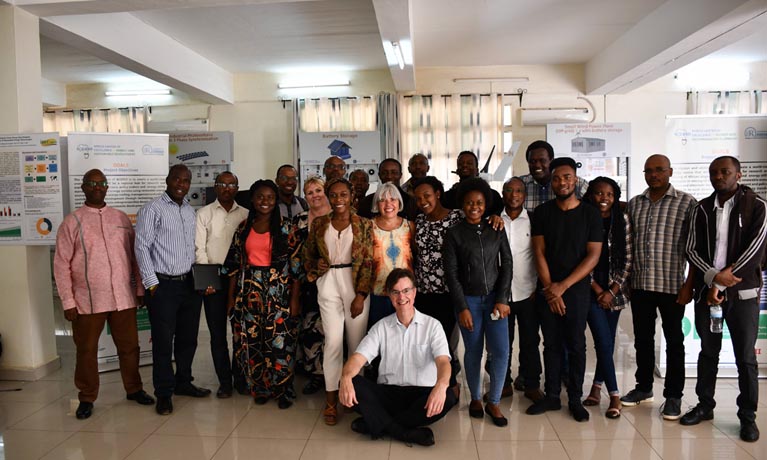Search
Coventry University and the University of Rwanda host collaborative Summer School on Smart Local Energy Systems

Monday 01 August 2022
Press contact
As part of the continued growth of Coventry University’s Africa Hub, researchers from the Centre for Computational Science and Mathematical Modelling delivered a three-day Internet of Things (IoT) summer school (SSES Rwanda 2022).
The summer school focused on the ‘Internet of Things’ a concept which defines the connectivity of any device to the internet, and thereby to other connected devices. Led by Professor James Brusey, the school welcomed Masters (MSc) candidates, PhD researchers, and early career researchers from 11 African countries.
The teaching aims of the summer school was to provide participants with the necessary understanding of taking products from concept to deployment, and to gain further understanding of designing wireless intelligent systems in the energy setting.
The summer school was organised in partnership with the University of Rwanda, and the Energy Revolution Research Consortium, with the support of the African Centre of Excellence in Energy for Sustainable Development, the African Centre of Excellence in IoT and the East African Institute for Fundamental Research.
It was such a transformative experience working with Postgraduate Researchers from across Africa. By sharing insights into the process and challenges of going from system concept through to real life IoT deployment, we could explore more critically how this knowledge can be applied to real-world scenarios in the sub-Saharan context.
Professor Elena Gaura, Theme Director, Data Science and Emerging Technologies
The summer school opened in June 2022, following the Commonwealth Heads of Government Meeting (CHOGM) in Rwanda. CHOGM welcomed Coventry University delegates and world leaders including Prince Charles, to build productive and meaningful relations between commonwealth countries.
The summer school programme included a variety of interactive workshops, keynotes, and practical sessions to enhance understanding of how the IoT can be applied in the design of Smart Energy Systems.
Smart Energy Systems are imperative to deliver cleaner and cheaper energy services for more prosperous and resilient communities nationwide, offering greater resilience and flexibility for all. These systems benefit the national energy system as an entirety, with an estimated 2 trillion dollars a year invested globally in the transition to low carbon power, transport, heat and localised, digitally connected energy systems.
The feedback from the summer school was exceedingly positive, with many attendees commenting on the value of sharing knowledge across disciplines and with their peers.
Attendees said:
The summer school taught me how we can optimise energy. I was introduced to Contiki, an open-source operating system, as well as emerging communication technologies which will be important in my field of work.
Teleza Kanthoga, Msc. in the IoT, Malawi
Since my research involves how IoT can help farmers to monitor their farm activities remotely, I got to learn the latest trends, activities and applications in Internet of Things which can be beneficial to my research.
Kazeneza Micheline, PhD in the IoT, Burundi




